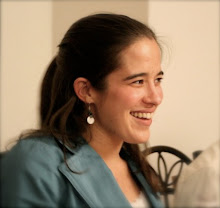A few more patient stories have come to mind over the past few days as I've been thinking about my last post. One is a young woman (perhaps 21 to 23 years old) who came in pregnant for the second time out of wedlock to use the old terminology. Her parents are apparently prominent in the church here, and the shame of her first pregnancy five years ago resulted in her being kicked out of the house to go live with her grandmother for the duration of her pregnancy and the first year of her baby's life. She does not want to tell them about this pregnancy, which is six weeks along. She wants termination, but our hospital as a mission hospital does not provide that. She cannot afford the trip to or procedure/drugs in Choma to terminate her pregnancy there, nor could she hide the length of the trip from her parents even if that were possible. She threatened to go eat from a tree whose bark or something is lethal to commit suicide if she cannot avoid this pregnancy.
Since we have nothing else to offer, the other med student and I talked to her for about an hour and a half at the end of a day, trying to explore other options or sources of support for her while she continued to voice her one and only request. We voiced our emotional support and tried to come up with strategies for her to find resources to help her with this pregnancy and the baby that may be born. It was a frustrating experience in patient counseling, somewhat like refusing antibiotics to a patient with a viral infection except on a much larger scale.
Another patient was a baby born with probably hydrocephalus with widely separated skull sutures. I learned that parents do not name their babies here until they are sure they will live, an interesting attempt to deal with a life that must be oversaturated with loss. The baby was tachypneic (fast breathing rate), and the lungs appeared underdeveloped, which we can't do anything for even in the States. He also kept getting hypothermic, so we'd put him under warming lights and wrap him in blankets to try to keep him warm - but not too warm without a temperature sensor. I think he just had too many things wrong with im, and he died a few days later.
One of my favorite patients, a woman who always smiled at me and spoke a little English, was discharged today with a referral to Lusaka, the capital city. She was found to have pancytopenia (low white blood cells, red blood cells, and platelets - all the major blood cell lines), hepatomegaly, and massive splenomegaly to four or five centimeters below (but lateral to) the umbilicus. This is a spleen even I could not miss! One of the major differential diagnoses is a blood cancer or leukemia, or some other myeloproliferative disorder, so we referred her for the bone marrow biopsy we can't do (and probably treatment we don't have available). I hope she goes and has a good outcome; sometimes even Lusaka seems a world away for these people (and me!), so I'm not sure what will happen.
The final story I wanted to share is a four-year-old boy who came in when I was on call, having stuck a kernel of maize (the staple crop here, which is ground up to make nsima) up his nose. After we finished rounds, we took him over to the operating theatre and put him out with some ketamine. Once he was relaxed, the doctor bent a paper clip and snagged the corn kernel, dragging it out of his nose. It worked! So, note to self: when in doubt about tools for foreign body removal...
Subscribe to:
Post Comments (Atom)


Dan had a similar story (to the maize one) with a kid who put a bean up his nose - or maybe it was in his ear.
ReplyDeletethanks for sharing your stories. may you find all the emotional support you need as you interact with and care for patients!!
wow, that first case sounds so hard, Amaris. it must make it even harder that you know you'll only be there short-term and can't promise support throughout the pregnancy and as she deals with parenting another child, etc.
ReplyDeletehave you had other patients die before? that baby sounded he had a lot of battles to fight.
love you and am praying for you as you deal with all these situations.
are you speaking to the patients in English mostly, or mostly with a translator?
- Bekah
Am, I remember teaching a women's Bible study in the village one day when a child stuck a peanut up his nose. I took off my safety pin (keeping my skirt more modest), bent it into a hook and pulled out the peanut with the kid lying on my lap. It was one of God' miracles that it worked!! I've read you can also hold the other nostril shut and puff into the mouth as the child is exhaling. I had a mom try this in Haiti, but all that flew out was lots of snot! Yikes! I'm not sure there was anything else in there to come out since I couldn't see anything with the otoscope. The mom thought her child had put something up his nose a couple weeks earlier, but perhaps he'd already swallowed it? MOM
ReplyDeleteYeah, my grandpa used the hold-one-nostril-shut-and-blow-in-the-mouth method in Kenya, and it worked! I always love to hear about the resourcefulness of doctors (and others) in situations where the more high-tech solutions aren't available. Thanks for the updates, Amaris.
ReplyDeleteCatherine